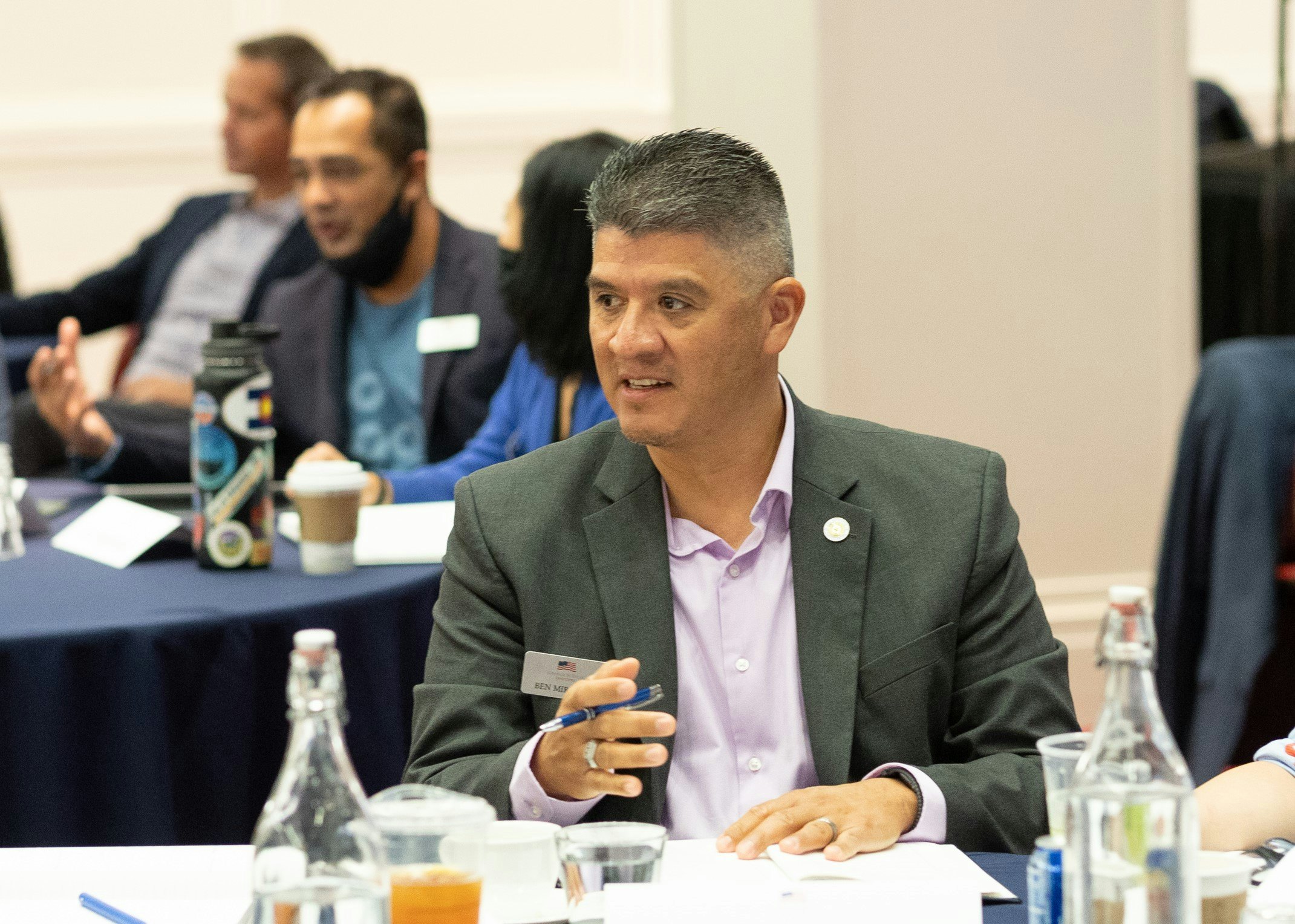In this Stand-To Veteran Leadership Program Scholar spotlight, Michelle Zook, Co-Director of Economic Assessments at TechLink, discusses how she has used creativity to support veterans, the lessons she learned in the Veteran Leadership Program, and what drives her passion for serving the military-connected community.
Please tell us a little bit about yourself and your personal leadership project (PLP).
My personal leadership project was advocating for the release of dependent suicide statistics from the Department of Defense, which eventually happened in September 2019. Dependents – particularly military spouses – remain a neglected cohort within the Department of Defense. As a military officer who transitioned into the role of military spouse, I was horrified to discover that the military spouse underemployment/unemployment rate is significantly higher than their civilian counterparts and their access to mental health is often limited by the same bureaucracy who views them as an appendage to a military servicemember and exploits their knowledge/free labor. Given that woman veterans are often more likely to be engaged in mil-to-mil marriages, this can be a double blow. The identity crisis of transition is now coupled with having to navigate an entirely new set of expectations in a culture that has no written rules and no real support.
Please give us an update on what you have been working on since completing the Stand-To Veteran Leadership Program.
Writing books!
I’ve been writing since I was a teenager, but once I joined the military, I set it aside. Although I knew how much I loved to read and how fiction can open doors to worlds that people may never experience in real life, I was always very secretive about writing it and felt that I needed to apologize for it. Somehow, in my mind, enjoying reading and writing fiction seemed like it was lesser than the white papers, journalistic exposés, and the nonfiction I was expected to have on my shelves. I really credit VLP and my cohort for encouraging me to embrace my fiction writing, lean into it, and own it.
Which lessons learned during the Veteran Leadership Program have stayed with you the most, and how have you put those lessons into action?
Mike Hemphill’s lessons on communication were incredibly impactful. In between sessions, I would review my notes over what I heard in our sessions from him about communicating values and how to transition it to a narrative, but I really struggled over what that meant to me personally and with my PLP and how I could implement that. However, at the VLP reunion in 2019, I knew the Department of Defense was inching closer to releasing the military dependent suicide statistics. At the same time, I also knew the member of Congress I was employed by was likely leaving the House soon. As questions about how to bridge the civilian-military divide continued to be a hot topic, conversations with my VLP cohort and some Team 42 alumni convinced me that maybe it was time to use my fiction to bring attention to veterans – and women veterans in particular.
What drives your passion for serving the military-connected community?
I think we can all agree that the Department of Defense, the Department of Veterans Affairs, and the military branches still have room for improvement, but almost everything I have in my life since joining the Air Force I can credit to the military. My spouse and I met in tech school, my graduate degree in public policy was paid for through the GI Bill, and the lessons learned in service and the friends/family I found there continue to not only open doors for me but for my children as well. I will forever be grateful for what the Air Force gave me and will continue to look for ways to support the men and women who choose to serve in whatever capacity they can in our Armed Forces, during and after service.
What do you currently see as the greatest challenge facing the military-connected community, and why?
I think the civilian-military divide remains an issue and perhaps an even greater one now that there is a perception that the Global War on Terror is concluded and all our servicemembers are home. The all-volunteer force is a wonderful thing, but then like we saw after 9/11, the military went to war and civilians went to the mall. I love that, in so many ways, life stateside was never impacted –that’s essentially what we in the military wanted, right? But, on the other hand, it has resulted in a citizenry that sometimes has little to no idea what the military and veterans need or require, much less the policy and budgetary impacts of legislation. We now lack a shared narrative, as a country, for the last two decades plus, and that’s something that I hope fiction can help humanize.
How have you used creativity to support veterans?
My debut novel, Even When You Lie, was released through Crooked Lane Books in March 2023 under my pen name, Michelle Cruz. It features a woman military veteran turned in-house private investigator for a criminal defense attorney in Uptown Dallas who stumbles upon a murder and refuses to allow it to be swept under the rug. I love that there is a growing cohort of post-9/11 military veterans and agency personnel in fiction. Offhand, I can think of not only NYT bestseller and friend, Don Bentley, but members of my International Thriller Writers’ Debut Class – I.S. Berry, T.R. Hendricks, Jonathan Payne, and Adam Sikes – and romantic suspense author Kimber Delaney, with many others beginning their writing/publishing journeys. I don’t think there’s an official organization yet for all of us, but I think it would be really cool to see one down the road!






























